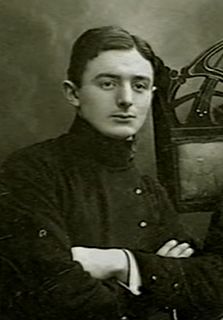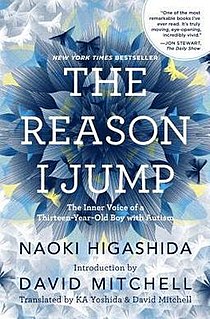A Quote by Marcel Proust
Perhaps the immobility of the things that surround us is forced upon them by our conviction that they are themselves, and not anything else, and by the immobility of our conceptions of them.
Quote Topics
Related Quotes
The mother eagle teaches her little ones to fly by making their nest so uncomfortable that they are forced to leave it and commit themselves to the unknown world of air outside. And just so does our God to us. He stirs up our comfortable nests, and pushes us over the edge of them, and we are forced to use our wings to save ourselves from fatal falling. Read your trials in this light, and see if you cannot begin to get a glimpse of their meaning. Your wings are being developed.
Our actual lives, including our values, our social relations, our self-conceptions, and many of our concepts, are pervasively shaped both by the knowledge and by the fact that we will someday die - that we are subject to extreme temporal scarcity. There is no reason to think that, if we were immortal, the same things would continue to matter to us. We have little or no idea what, if anything, would matter to immortal beings, or even how such beings would think of themselves.
In our memories, there is a graveyard where we bury our dead. They all lie there together, the loved ones and the ones we hated, friends and foes and kin, with no distinction among them. We have to mourn every one of them, because our memories have made them as much a part of us as our bones or our skin. If we don't, we've no right to remember anything at all.
Since the journey is a metaphor - the most ambiguous and seductive of metaphors, we tell ourselves - it can also be born of immobility. There is no need to drag our bodies around so much, all dressed up. It's hot, there are flies, diseases. It is enough to close our eyes, seated on a chair in the shade, to float on the waves of imagination. Isn't that what books are there for?
We have no reason to mistrust our world, for it is not against us. Has it terrors, they are our terrors; has it abysses, those abysses belong to us; are dangers at hand, we must try to love them.... Perhaps all the dragons of our lives are princesses who are only waiting to see us once beautiful and brave. Perhaps everything terrible is in its deepest being something helpless that wants help from us.
We buy things. We wear them or put them on our walls, or sit on them, but anyone who wants to can take them away from us. Or break them.
...
Long after he's dead, someone else will own those stupid little boxes, and then someone after him, just as someone owned them before he did. But no one ever thinks of that: objects survive us and go on living. It's stupid to believe we own them. And it's sinful for them to be so important.
Criticizing people, winding them up, making idiots of them or fooling them doesn't make people with autism laugh. What makes us smile from the inside is seeing something beautiful, or a memory makes us laugh. This generally happens when there's nobody watching us. And at night, on our own, we might burst out laughing underneath the duvet, or roar with later in an empty room ... When we don't need to think about other people or anything else, that's when we wear our aural expressions.






































